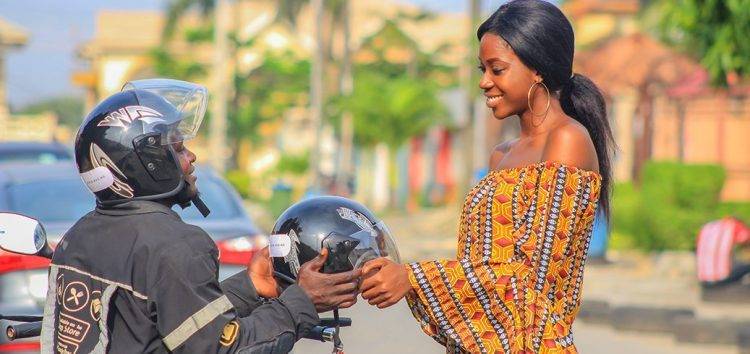Why This e-Hailing Company Is Expanding Its Fleet Of Bikes & Hiring More Riders Despite The “Okada Ban”

Nearly two weeks have passed since commercial motorcycles and tricycles were barred from operating in major roads, highways and bridges in six Local Government Areas (LGAs) in Lagos, including some of the hottest spots for such modes of road transport.
The “Okada ban”, as it is commonly called, spelled doom for the thousands of informal riders who make a living off of moving people and goods briskly, while also making life more difficult for the thousands of commuters who have to now either engage in some serious trekking or be stuck in traffic for hours.
But perhaps the worse hit of the lot are the e-hailing startups who had seemingly been encouraged by the Lagos State Government to invest heavily into formalising and standardising the motorbike taxi sector and yet were not spared when the government opted to wield the big stick.
Many feared the worst for the mobility startups and, true to that, barely two days after the Okada ban took effect, word got out that Gokada — a bike-hailing startup which has been operating in Lagos since 2017 — had laid off most of its employees and was now desperately plotting a logistics/water transport pivot.
As a matter of fact, Fahim Saleh, the American national who is Gokada’s current CEO, told WeeTracker that the startup had laid off a good number of its staff because revenue stopped coming in once the Okada ban took effect.
But it seems talk of the Okada ban being the perfect smokescreen for an already-beleaguered Gokada to trim its staff base significantly and address some internal malaise might have some truth in it, especially as other players seem to be strengthening in spite of the ban.
As a matter of fact, MAX.ng, the mobility company that pioneered on-demand bike-hailing in Nigeria, is staying bullish and going bigger despite the ban, rather than downsizing as many had predicted.
Adetayo “Tayo” Bamiduro, co-founder and CEO of MAX.ng, has revealed to WeeTracker that the startup is unfazed by the changes and is actually on the verge of increasing its fleet and hiring more people. Fun Fact: MAX.ng claims to currently provide up to 2200 direct jobs for its drivers and full-time staff and some 73,000 indirect jobs.
“MAX.ng is actually hiring more people, we are not laying off anybody,” he said over a phone call.
“We are not moving away from transportation, that’s number one. Number two is that we are a multi-city company, we are already in four cities — Lagos, Ibanda, Akure, and Kano — and we are about to launch in a fifth city in South-Western Nigeria which will remain nameless for now.”
He added, “So we won’t change our mission because of what is happening in one city. We remain firmly committed to making mobility safe, affordable, and accessible to Nigerians and Africans and we’ll continue to do that within the confines of the law.”
The MAX.ng co-founder also suggested that Lagos remains a key part of the startup’s operations, reiterating that the Okada ban only restricted motorbikes and tricycles from operating in a few LGAs.
“Lagos remains a very important part of our strategy. Right now, there are restrictions around which areas we can operate in but yet we can still operate in 15 LGAs out of 21 in Lagos,” he said.
“So there’s still a very large population that we can legally provide our services to and we’ll continue to serve those areas and those populations.”
Also, it is understood that talks are still in progress with the government to iron out certain modalities.
“We are talking to the government and other key stakeholders in the transport industry,” said Tayo. “These talks are yielding results and we are hopeful that ultimately, the government will make announcements in the near future around further reforms in the industry.”
Tayo also made it clear that the conversations currently being had with the government and stakeholder border, not on a possible reversal of the ban, but on what happens from here on now, especially with the licensing and regulatory regime.
MAX.ng, which already had logistics/delivery operations in place long before now, has no new plans in that regard, though one of its big moves for 2020 is the expected launch of its electric motorcycles which Tayo confirmed now numbers 20.
The Electric Vehicles (EVs) as well as their charging stations, which are being wholly assembled in Nigeria, will be piloted in a few cities including Lagos and Ibadan, and one other semi-rural community. Tayo wouldn’t put a timeline on the launch of the EVs but he did hint at “interesting” things happening within 2-4 weeks.
Correction: An earlier version of this article referred to Gokada’s CEO, Fahim Saleh, as a Bangladeshi national. This has been corrected to reflect that Saleh is indeed a citizen of the United States of America (USA), though he was born in Saudi Arabia.